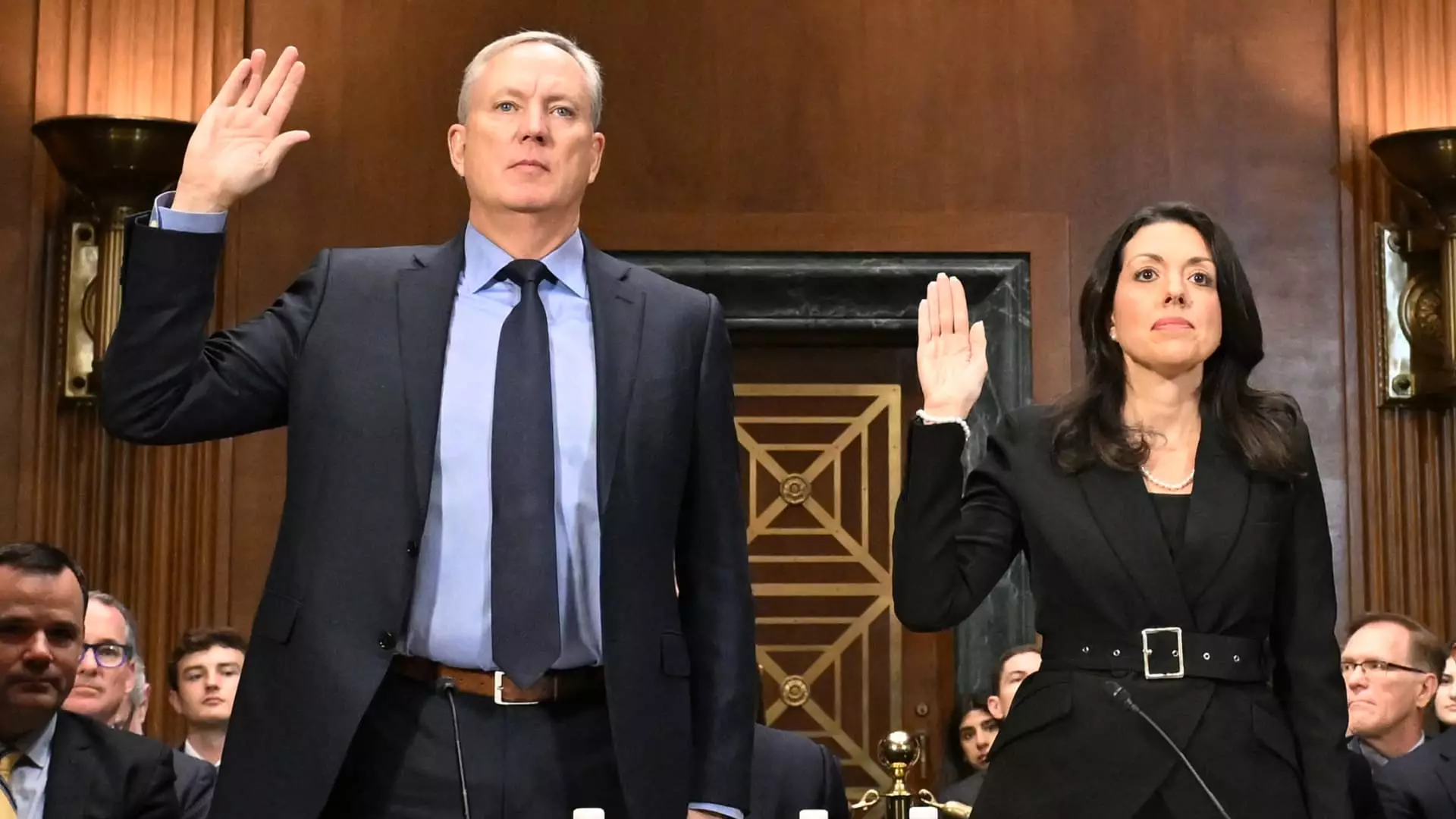The Senate Judiciary Committee has recently highlighted a pressing issue in the realm of payment processing: the dominant position of Visa and Mastercard. These financial giants have been labeled as having a “duopoly” that significantly undermines the interests of small businesses and retailers across America. The bipartisan concern stems from the interchange fees—commonly referred to as swipe fees—that merchants must pay whenever credit cards are used in transactions. The sentiment shared by both conservative and liberal members of the Senate underscores the urgency of the matter. Committee chair, Senator Dick Durbin, highlighted the striking consensus among political ideologies that action is needed to address the disproportionate control these corporations have over transaction costs.
With a collective market capitalization exceeding $1 trillion and controlling 80% of the U.S. credit card market, Visa and Mastercard’s influence is near-unassailable. In fact, it has been reported that these companies charged American merchants upwards of $100 billion in swipe fees in just 2023. This figure is alarming, particularly when considering that these fees can represent one of the largest expenses for small businesses, eating into their profit margins significantly.
In response to this imbalance, Senator Durbin and Republican colleague Senator Roger Marshall have introduced the Credit Card Competition Act. This proposed legislation seeks to mandate that financial institutions with assets exceeding $100 billion must offer at least one alternative payment network to merchants, thus fostering competitive dynamics in the credit card sector. According to Durbin, providing small businesses with a choice means they could either continue to use Visa or Mastercard and incur high interchange fees or opt for a less costly alternative.
This effort to augment competition comes from an understanding that small merchants often find themselves in a position where they cannot negotiate better terms or lower fees, causing a cascading effect on their overall profitability. Proponents of the Credit Card Competition Act believe that increased competition could lead to reduced fees and greater financial autonomy for small business owners.
While the proposal has garnered support from many corners, Visa and Mastercard have mounted a staunch defense of their fee structures. Representatives from both companies argue that interchange fees are essential, functioning as incentives for innovation, enhanced security, and improved transaction efficiency. Bill Sheedy, senior advisor to Visa’s CEO, articulated the challenge of providing secure payment guarantees, customer service, and innovations in transactions, all of which contribute to the cost structure encapsulated in interchange fees.
Moreover, both executives cautioned against potential consequences that might arise from the Credit Card Competition Act, claiming it could reduce consumer autonomy in choosing payment methods, hinder competition in the marketplace, and unduly favor specific payment networks. Such arguments evoke historical concerns; Mastercard’s President referenced the effects of the Durbin amendment from the Dodd-Frank Act, which purportedly harmed consumer reward programs and increased overall fees due to stringent regulations on debit transactions.
Despite the defenses put forward by Visa and Mastercard, the implications of high swipe fees resonate beyond small businesses and extend to consumers, who may unwittingly bear the burden of increasing prices. The National Retail Federation anticipated that lower interchange fees could translate to fairer pricing across the board, asserting that swipe fees contribute to a notable percentage of consumer spending. For instance, research has illuminated that the average American spends around $1,100 yearly on such fees—money that, when aggregated across millions of consumers, can significantly impact purchasing power.
In a notable instance, an attempted $30 billion settlement was reached between Visa, Mastercard, and retailers to reduce swipe fees. However, the settlement was rejected by a federal judge, indicating that the courts also view the interchange fees question as one that merits deeper scrutiny. Visa’s ongoing legal battle with the Department of Justice over allegations of maintaining a monopoly further complicates the landscape, reminding stakeholders that the conversation around payment processing is both timely and necessary.
As the Senate Judiciary Committee hearing underscores, there is a profound need for reevaluation of the interchange fee structure in the context of the credit card industry. The mixing of ideologies among lawmakers suggests that solutions could emerge from a collaborative effort to foster a healthier, more competitive payment ecosystem. As discussions continue around the Credit Card Competition Act and its implications, one thing is clear: the time has come for a holistic review of practices that directly affect small businesses and consumers in the evolving digital economy. By prioritizing fairness and transparency in credit card transactions, all stakeholders have the potential to benefit from a restructured market that encourages innovation while ensuring that the burdens of fees do not hinder economic growth.


Leave a Reply